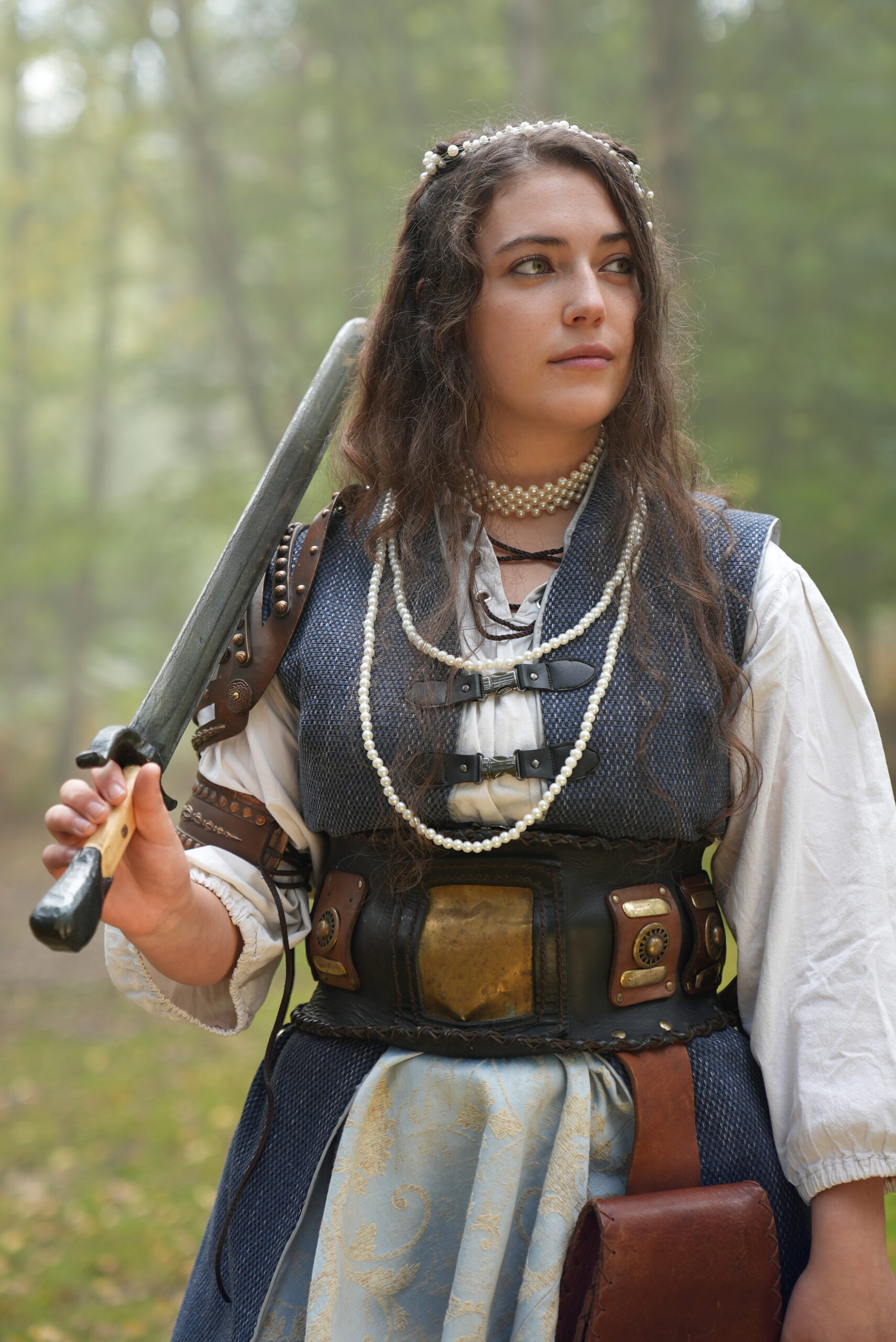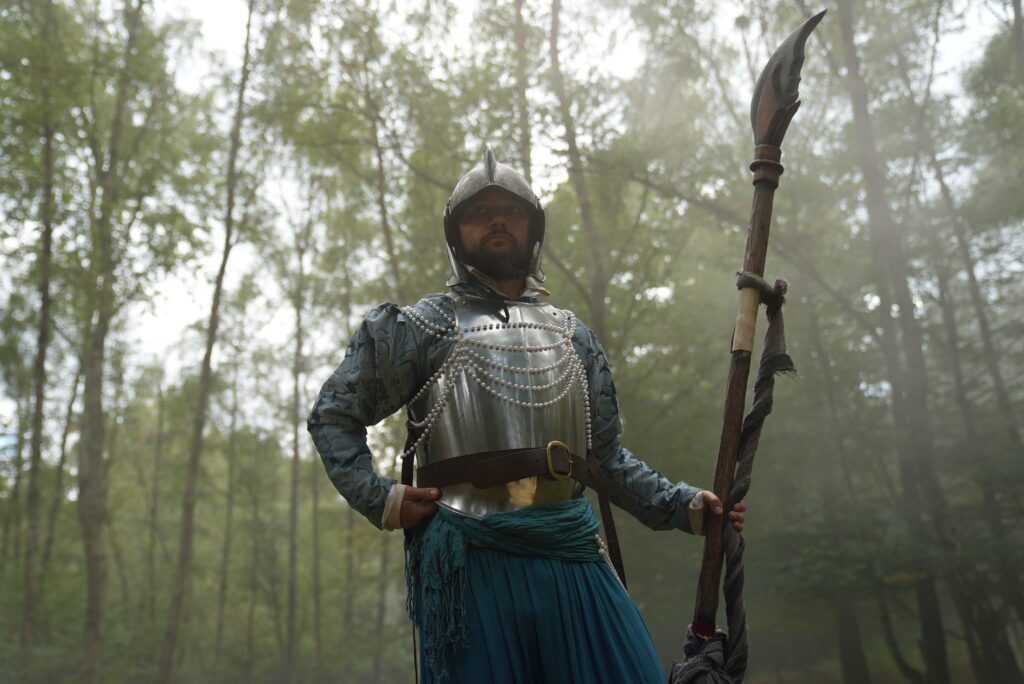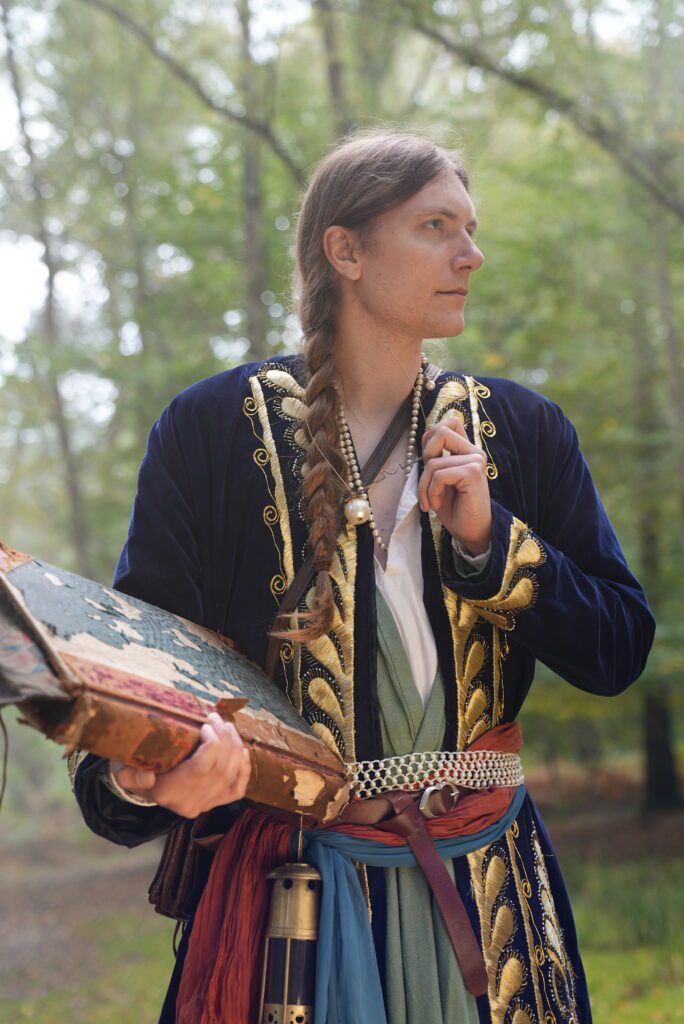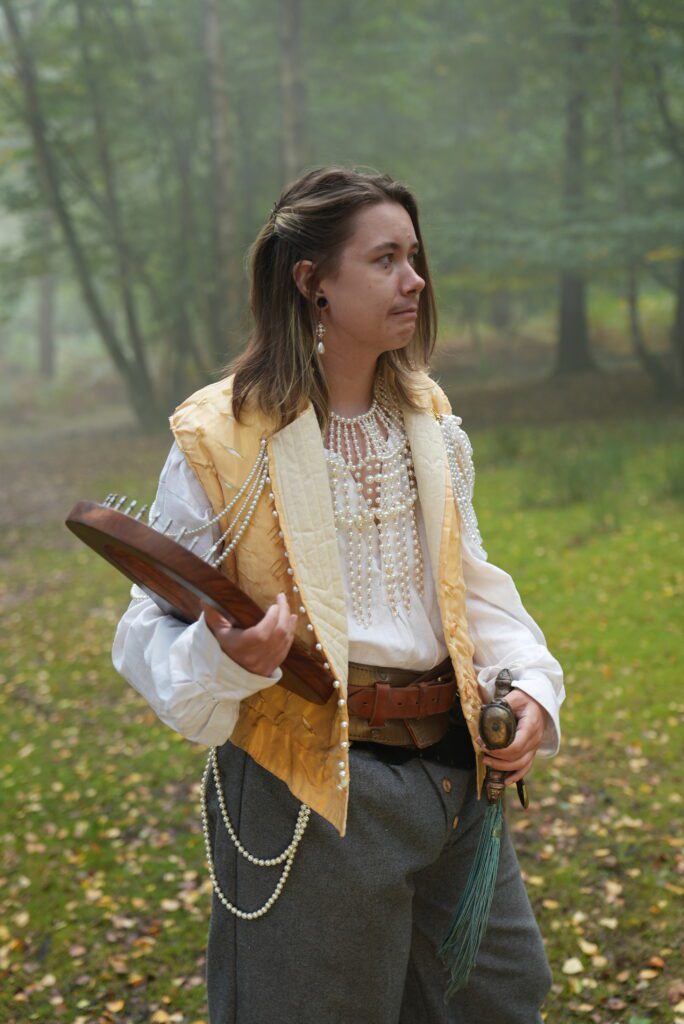Archetypes
Swashbucklers
Most of the fighting population of Portavas are swashbucklers, lightly armoured, fast fighters who favour close quick combat and target specific fights. In reflection to the short and decisive battles that take place on ships, swashbucklers are often used to best effect when focusing on a specific goal. Fast thinking and fast moving, retreat is not a bad word in Portavas. That being said if a unit does find it has to step back from a fight, this is where solo swashbucklers shine. Many a story has been told of a single brave fighter holding off a ship’s worth of enemies while the injured escape. It is an honourable way to pass on, protecting the interests of the Crew, Family, and House.
When encircling an enemy Swashbucklers are relentless; death by a thousand cuts. Anything looted during battle is seen as part of the Price Payment made to the Nation and it’s expected these items will be presented to the heads of Houses, Families, and Crews to be distributed equally. If a particularly hard fight has seen a Swashbuckler demonstrate exceptional courage and skill, the head of the group may give the entire haul to them.

Shell-Helms
Heavy Warrior land guard. They are the fully armoured equivalent of “Knights” – specialists at front line fighting on land. They favour long halberds or pikes, but most have a secondary weapon of choice for close combat scenarios. It makes it difficult to fight on ships, but not all wars are fought on the water (more’s the pity). They are often set as retainers to wealthy households and act as both guardians and weapons trainers; specialists for younger members of the family or house to learn from. Their reputation is their calling card and while they are very capable of working with other Shell-Helms and Units, they will do what they can in battle to stand out and hopefully be spotted for promotion or pay rise. Many Families and Houses will take pride in having a Helm of high reputation in their retinue.
They have been known to take to the open sea, but each of them know the risks of falling overboard. Many Helms proudly serve contractually to one Family or House their entire life. Some become Captains, or heads of Houses in their own right.

Navigators
Also known as Stargazers or Knot Weavers – are the best paid role on a ship. They earn even more than the Captain and are often freelance magical operatives who spend contractual time on boats before moving on. Knowledgeable in the academic side of navigation, they are capable of chart reading and map plotting, but their use of magic is their real strength. They are frequently hired for specific trips or to chart unknown areas. Their use of magic is necessary when traversing the dangerous waters of Elandria. On land their powers of Divination, and control over the realms of Water, Air, and Oracle are highly prized. Recently some landlocked Navigators have begun to dabble in Earth magic to aid the war effort, but it is not their preferred sphere. Whether moving ships or armies, Navigators are the readers of the maps of fate. Likewise when trying to hide a specific person or item, it’s difficult to avoid a Navigator, as they seem to always know the way.

Xenomagus
Known historically for doing great works, this archaeology based school of magic now focuses on the procuring of and study of ancient magical objects. There are rumors of dark deeds performed by a large group of Xenomagus to secure Portavas’ safety. Their clouded history doesn’t stop them from being viewed by Portavians as useful members of society, but their reputation can be slightly unsettling for those not of the Nation. Focusing on specific goals, the thirst for knowledge and the wealth that can be obtained has led to a number of problematic feuds between different Xenomagus families.
They are academic on paper, but in practice are known to delve deeper, and into more dangerous areas of the world than most when searching for truth and the next weapon to destroy the corruption. Any Crew with a Xenomagus onboard most likely partakes in dredging, an action where long weighter nets are dragged across the ocean floor in areas of magical or historical interest.
Sawbones
Healers are pragmatic in Portavas; the exotic ailments and injuries experienced by those who travel to dangerous parts of the world need a strong stomach and a steady hand to heal. A healer can only call themselves a Sawbones once they have graduated from their Apprenticeship and completed a full year as a solo healer, either on campaign on land or at sea. This test is known as the “Migration”, as Apprentices are nicknamed “Ospreys”. Once they have completed this journey, they can choose to stay with a crew and become a battle healer, or join the Portavians who work on land. Sawbones are often hired to work for specific Families or Houses, but others choose a more charitable life in keeping with the cultural adherence to The Price. Sawbones are seldom without friends, and should a Sawbones need assistance there are many Portavians who would gladly stand and help.
Shipwrights
Respected not just as artisans but as key to the war effort. Portavas may be known for their ships but many nations have ports and sailors. Those sailors need ships. If you want something built quickly an army of Shipwrights can build you a town overnight. Shipwrights are also known for their specialist woodworking skills, and Forge Mage Shipwrights carve figure heads for the ships they create. When attached to a crew, a Shipwright takes a valued place maintaining the vessel, and it is very rare for a Shipwright to leave the ship they know and care for to move to another one. Other nations assume it is the Captain that goes down with the ship, but in most Portavian stories about shipwrecks, it is the Shipwright who haunts their briny halls.
Sand Scribes
Travelling monks or maesters who are a keeper of the books, both financial and historical on board a ship. They note down the exploits of the crew as well as the profits and pitfalls. They are crucial to keep good records and collect evidence of a ship’s travels. Distance travelled is a point of pride for all citizens. They also hold a role as ship’s priest, and acting as part bard, part lore keeper, they keep the crew from straying too far away from the light of the patron god of the ship. Sand Scribes bless a ship upon its first launch, dedicating it to a patron god. Some ships do not choose one god, and instead their Sand Scribe takes on a role as a moral compass. They perform ceremonies, such as funerals and weddings, and also report the ship’s stories to the House of Scribes and the Keeper of the Books.




